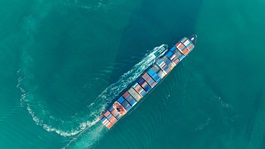On 30th May 2022, it has been 25 years since the Model law on Cross Border Insolvency (Model Law) was adopted by the United Nations Commission on International Trade Law to facilitate cross-border insolvencies more effectively and efficiently. Only 51 states have adopted the Model Law since then and in this article we reflect why the Netherlands has not adopted it and how cross-border insolvency proceedings are recognised by the Dutch courts.
Historically, the Dutch legislator was not keen to introduce legislation in relation to the recognition of foreign insolvency proceedings. Although the Dutch Bankruptcy Act (DBA) contains a chapter on cross-border insolvency matters, this chapter only contains three brief sections that merely regulate dealing with assets of a Dutch debtor located abroad.
If follows from the legislative history of the DBA, that the Dutch legislator was hesitant to recognise foreign insolvency proceedings in the Netherlands when the DBA was codified in 1890s. The main concern of the legislator back then was that this would result in the recognition of foreign insolvency proceedings from less developed legal systems than the Netherlands. However, these historic concerns seem somewhat outdated. More recently, the Dutch legislator is considering to implement (parts of) the Model Law in the Netherlands.
The European Insolvency Regulation
The Netherlands is bound by Regulation (EU) 2015/848 of the European Parliament and of the Council of 20 May 2015 on insolvency proceedings (recast) (the EIR). The EIR provides for the recognition of insolvency proceedings and the enforcement of decisions in the context of such proceedings among the Member States of the European Union (except for Denmark). Further, the EIR provides for cooperation and coordination of insolvency proceedings in various jurisdictions within the EU, whether these various proceedings relate to one single debtor or to different entities within a group of companies across the Member States.
The EIR applies when a debtor has its centre of main interests (COMI) in one of the Member States. The core principle of the EIR is the automatic recognition of main insolvency proceedings across the Member States. Consequently, judgments rendered in the context of the main insolvency proceedings are automatically recognised across the Member States and the insolvency practitioner appointed in the main insolvency proceedings is authorised to exercise his or her powers in accordance with the laws of the Member State where the main insolvency proceeding was opened. If main insolvency proceedings are opened by a court in a Member State, such decision is to be respected by the courts of the other Member States, which also means that the courts of those other Member States can no longer open main insolvency proceedings. However, the EIR provides for the possibility to have non-main or territorial proceedings opened in other Member States where the debtor does not have its COMI, but has an establishment. Such non-main or territorial proceedings will only apply to the assets of the debtor located in that jurisdiction.
Recognition of non-EU insolvency proceedings
Absent statutory provisions dealing with the recognition of foreign non-EU insolvency proceedings, the recognition of foreign non-EU insolvency proceedings has been the subject of extensive case law of the Supreme Court of the Netherlands. While the principle of universality applies to insolvency proceedings opened in the Netherlands (i.e. from a Dutch law perspective, such insolvency proceedings have universal effect), the principle of territoriality applies to foreign non-EU insolvency proceedings (i.e. in principle, foreign non-EU insolvency proceedings have no effect in the Netherlands). However, there is some nuance to this, because it does not mean that foreign non-EU insolvency proceedings have no effect at all in the Netherlands. In recent years, the case law of the Supreme Court of the Netherlands has developed a patchy response due to the lack of clear legislation on this topic, resulting in a complex legal landscape for the recognition of foreign non-EU insolvency proceedings.
The principle of territoriality marks the starting point for the recognition of foreign non-EU insolvency proceedings. In the absence of an applicable treaty, foreign non-EU insolvency proceedings are not automatically recognised in the Netherlands. Consequently, the assets of the foreign debtor located in the Netherlands are not subject to the foreign non-EU insolvency proceedings. The legal consequences of the insolvency laws applicable to the foreign non-EU insolvency proceedings do not apply in the Netherlands, i.e. creditors may still have recourse to assets located in the Netherlands.
However, the territorial effect of foreign non-EU insolvency proceedings does not prevent other effects of foreign non-EU insolvency proceedings being recognised in the Netherlands, if certain requirements are satisfied. A Dutch court will, in principle, recognise a foreign non-EU insolvency judgment, if it finds: (i) that the jurisdiction of the foreign court has been based on grounds which are internationally acceptable; (ii) that proper legal procedures have been observed and proper service of process had been given; (iii) that the foreign judgment would not be contrary to Dutch public policy; and (iv) that the foreign judgment is not irreconcilable with a judgment of a Dutch court or an earlier judgment of a foreign court that is capable of being recognised in the Netherlands. For example, if the above-mentioned requirements are met, an insolvency practitioner appointed in a foreign non-EU insolvency proceeding has the powers to dispose of the debtor’s assets located in the Netherlands, provided that he or she has the authority to do so under the laws of the jurisdiction where the insolvency proceeding was opened.
Cooperation protocols implemented by Dutch courts generally
Apart from the EIR and the rules derived from case law as discussed above, no protocols for cross-border cooperation apply in the Netherlands in the context of (foreign non-EU) insolvency proceedings. Although the Netherlands had entered into bilateral treaties with Belgium and Germany, which – among other things – related to cross-border insolvency proceedings, these were replaced by the EIR. Nonetheless, we have seen the use of cross-border protocols in insolvency proceedings in practice in the Netherlands. A well-known recent example is the Dutch bankruptcy of Jet Airways where a cross-border cooperation protocol was agreed between the Dutch bankruptcy trustee and the Indian resolution professional.
The WHOA
On 1 January 2021, the Act on Court Confirmation of Extrajudicial Restructuring Plans (Wet homologatie onderhands akkoord, the WHOA also referred to as the Dutch Scheme) entered into force. This was the first time that a pre-insolvency proceeding was introduced in the Netherlands. The WHOA has contributed in three ways to (addressing the lack of a framework for) the recognition of cross-border insolvency proceedings. First, it provides an excellent tool to be used by foreign debtors, making the Netherlands an attractive restructuring hub. Second - since it is inspired by the US Chapter 11 proceeding and the UK scheme of arrangements - it allows Dutch courts to gain a better understanding of international restructuring tools from which they will benefit when questions on the recognition of (certain elements of) such foreign insolvency proceeding are before the Dutch Court. Third, where a foreign restructuring proceeding is not recognised in the Netherlands, foreign debtors may use the Dutch Scheme to mirror the restructuring plan offered in those other jurisdictions, which enables them to offer the same under a restructuring plan under the WHOA so as to ensure that such restructuring has effect in the Netherlands as well.








